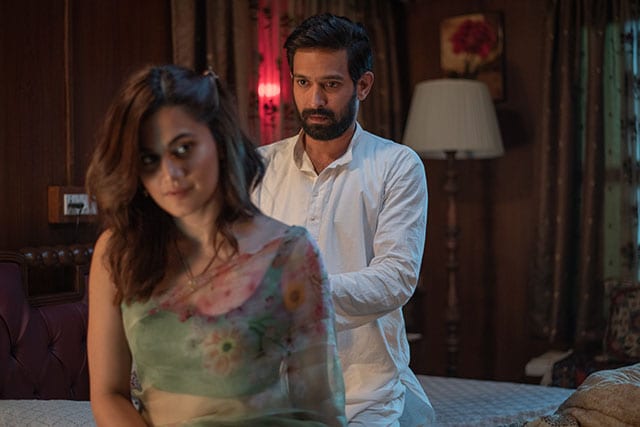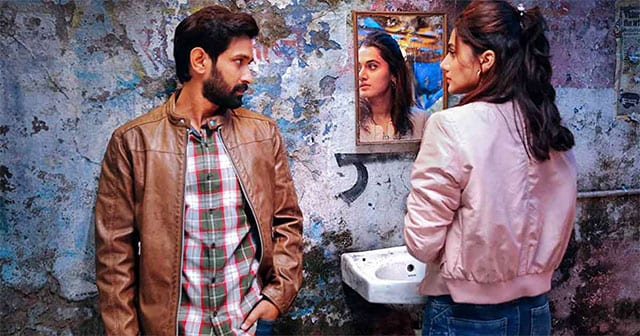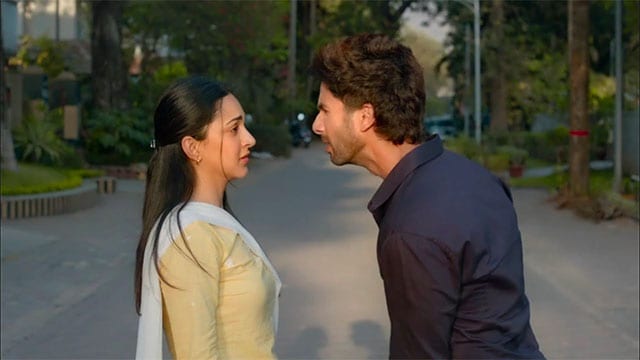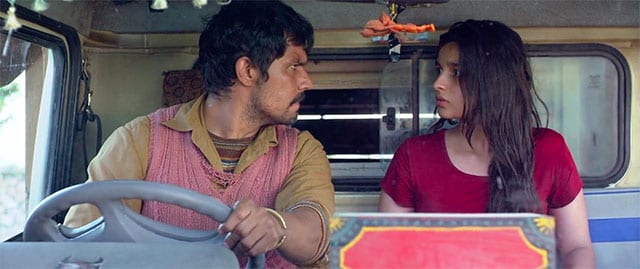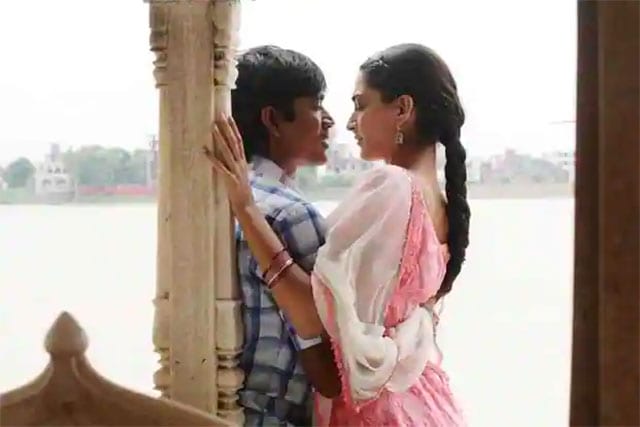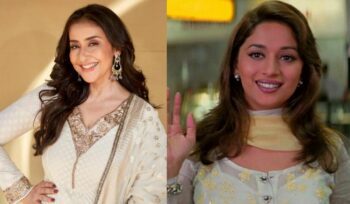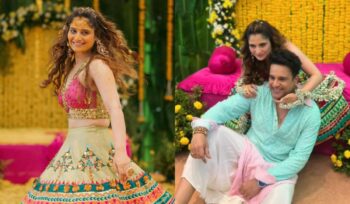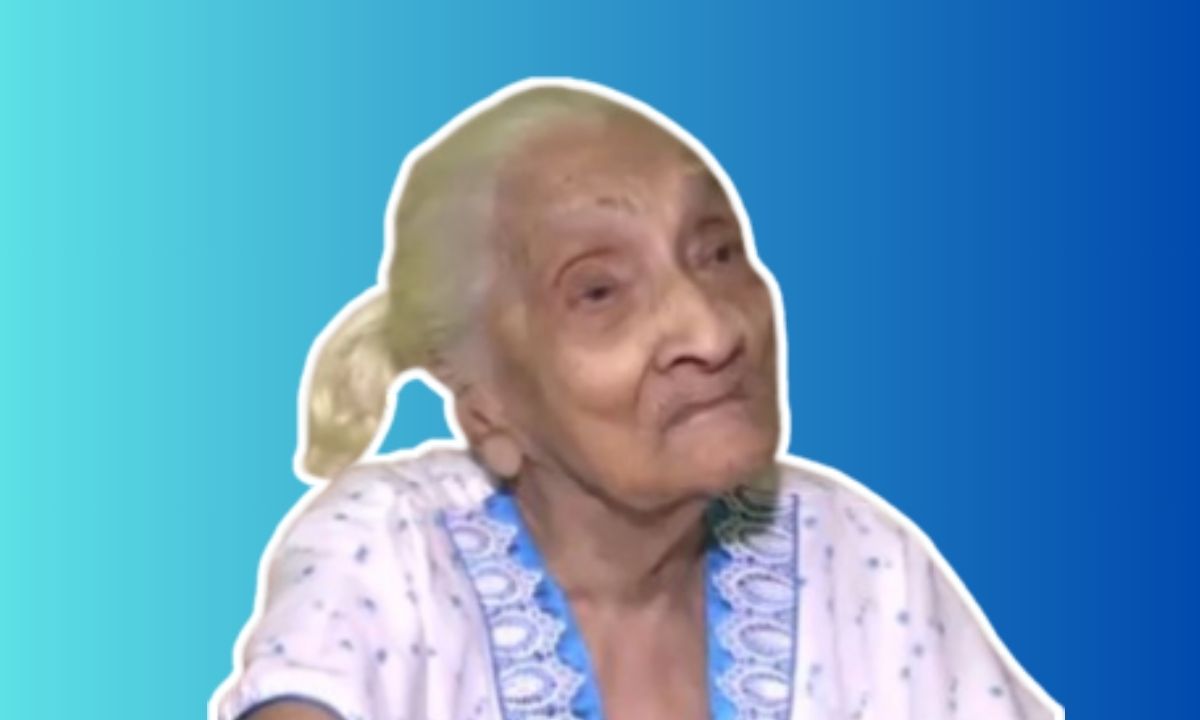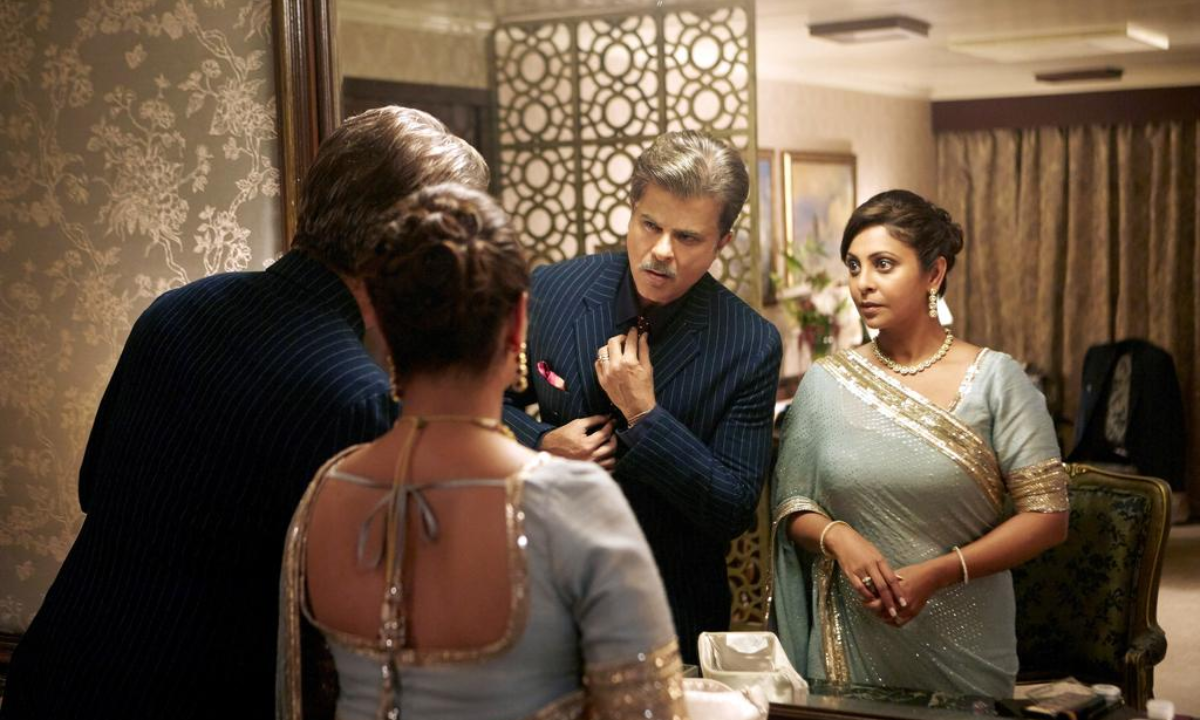If Bollywood Wants To Tell Problematic Love Stories, It Must Find A Way To Tell Them Better
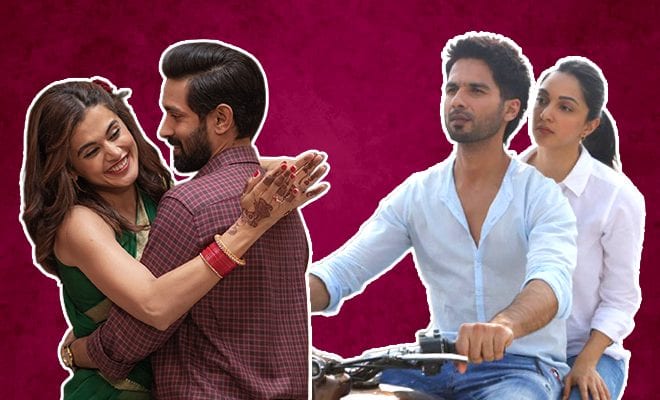
Last weekend, the much anticipated Haseen Dillruba, starring Taapsee Pannu, Vikrant Massey and Harshvardhan Rane, released on Netflix. While the film was marketed as this ‘Pati Patni Aur Woh’ whodunnit set in small-town India, the film turned out to be a much deeper commentary on arranged marriages, repression and female sexuality, toxic love, and passion that teeters on violence. Unfortunately, if I were to omit the name of the film, these descriptors could be applied to almost every second Bollywood love story of our or our parents’ age. The angry young hero going to any lengths to get the girl of his dreams…. The heroine always second guessing her doubts about the hero’s toxic masculinity and thinking he is the best she can do because even if he hurts her, he loves her more…. Both of them forgiving each other despite all the pain and damage they’ve caused each other, often times physical….
These are all regular occurrences in Indian movies. And that is justified by writers and filmmakers by saying that this is how love stories are in real life. And indeed, this toxic love that superimposes itself over all notions of logic and sense, is exactly how young India loves, and how it has been loving for the past many, many years. But while real informs the stories we see on reel, this influence is a two-way street.
What we see on reel also influences how we behave in real life. So when you see Dhanush’s character stalking Sonam Kapoor’s schoolgirl in Ranjhanaa, or Shah Rukh Khan’s Raj pestering Kajol’s Simran during the entire trip in DDLJ, they’re definitely antics based off of real life romeos. But at the same time, watching their ‘heroes’ do this on screen romanticises stalking as a behaviour for the audience. Men think every woman will like it just like the heroine did on screen. And women will think if a man stalks them, it’s okay because it’s his way of expressing love, and she must consent to in the end. Or not. Kyunki ladki ki naa mein bhi haan hoti hai.
Help! I enjoyed watching a problematic love story. Is that okay?
If you’ve read my review of Haseen Dillruba, which is a film where every character is a varying shade of grey, I mention how the film raises a huge question about its ideology and the morality of the viewer who enjoys the film. We see how Taapsee’s character goes from being this woman who is fierce and unapologetic, to a wife who thinks the only repentance for cheating on her loyal husband is to let him cause her pain, both physical and psychological. And the husband, played by the brilliant Vikrant Massey, goes from ceasing to live up to his wife’s expectations of a husband, eventually transforms into a borderline psychopath who will go to any lengths to be the man he thinks she’d love.
It’s normal to watch the second half where Rani and Rishu’s twisted love story is taking shape, and wonder if enjoying this means your own morals are dubious. Am I condoning this violence and murderous rage? Am I okay with people getting away with murder? Am I saying that such violent, abusive, toxic love is healthy?
The answer is simple: Does loving true crime documentaries on serial killers mean you condone murder? Of course not! It is fascinating to see how human psychology works and the extremes to which emotions can control people or vice versa. Besides, if a film were just entertaining because of its story and characters’ actions, the films of a certain Bhaijaan and a mango-loving patriotic khiladi wouldn’t be raking moolah at the box office!
You could enjoy a film for several reasons. For just how engrossing it is, how the plot is woven to make the final act cohesive and effective, for the actors’ performances, the film’s music that evokes the right emotions, art direction that transports you into a world that doesn’t exist, and for its rich production value which contributes to an overall stunning visual experience.
It’s easy to deduce that enjoying serial killer documentaries is not the same as endorsing murder because the distinction between right and wrong is very blatantly clear. You do wrong, you pay. It’s black and white. However, this inference gets difficult the more you venture into grey territory. And since most human desire and action fall in this grey space, if that moral distinction isn’t clarified, the less gullible audience might not understand that what these characters are doing is ultimately wrong and toxic. And that’s where the problem arises.
Also Read: Haseen Dillruba Review: A Treacherous Mistress That’s Morally Ambiguous But Absolutely Engrossing
The question isn’t “Should we tell toxic love stories or not?” The question is “How should we tell them?”
When the debate around Kabir Singh was in full swing, one of the most fallacious arguments on the maker’s and actors’ part was trying to justify the toxic relationship between Kabir and Preeti. Because while it was reflective of a lot of real love stories, there’s never an attempt to highlight all the ways that both these characters were toxic to each other and unhealthily codependent.
There’s this joke that says if Christian Grey from Fifty Shades of Grey were not a rich, good-looking dude, then his pursuit of Anastasia and his kinks would make for a plot of Criminal Minds. By that same logic, if Preeti were someone who didn’t like Kabir’s advances, this could’ve easily turned into a case of stalking and sexual harassment in college. In real life, there is a Preeti who falls for Kabir despite toxic masculinity. But there are also Preetis who lodge police complaints. Or worse, become victims. Even lose their lives.
Let’s also mention that Kabir operating on patients while being drunk, Preeti marrying another man despite being in love with Kabir just to spite him, and then both getting back together, are all outcomes where other people’s lives are in constant danger of getting ruined. And yet, not a single ‘disclaimer’ or indication, either through dialogues from other characters in their life, suggested that these two were toxic people and not role models. Instead, Kabir’s obsession with Preeti when he takes literal ownership of her like she is some property (Kabir ki bandi) is glorified with electrifying background music!
Haseen Dillruba does not have its origin in toxic love. In fact, it is slightly better nuanced in showing the progression of innocent, unshakeable love into something toxic and violent. And through the character of the cop, it tries to subtly let us know that this isn’t exactly an acceptable way to live out your love story. I also thought Vikrant Massey’s facial expressions conveyed that it was sheer madness that possessed his Rishu to behave the way he did. And perhaps, even the way Taapsee’s Rani falls for Rishu was enough to suggest that her ‘love’ for Rishu could easily have been her guilt for cheating on him or self-policing after being burnt by Neel. And yet, these were still too subtle messagings that could’ve easily been lost on an audience that doesn’t care much for intellectual discourse on movies or psychological issues like cognitive dissonance, and just watches them for entertainment.
Another film that I often cite as an example is Highway, where the relationship between Alia Bhatt’s character and her kidnapper (played by Randeep Hooda) is somewhat romanticised. However, when the film came out, there was considerable discussion about how it could’ve been Stockholm syndrome. The character had many issues born of childhood trauma, because she was sexually abused as a kid. And the film never implied that if you ever get kidnapped, your kidnapper needs to be sympathised with or that he will be nice to you.
Also Read: 5 Takeaways About Dating From ‘Good On Paper’ Starring Comedian Iliza Shlesinger That Are Worth Remembering
It’s a rather paradoxical situation for Indian cinema here, I feel. It is often accused of treating its audiences like children and spoonfeeding them with exposition, instead of letting them make their own inferences. That’s why a film with an open ending is less pleasing than one that clearly spells out the fate of the characters. At the same time, however, the Indian audience has been lethargic and spoon-fed for so long now, that it is going to take some time to reach the maturity of, say a Hollywood or international cinema audience, which has consumed better cinema over time and grown with it. It’s nobody’s fault, and everybody’s fault. But the point is, this easing into thinking for themselves will have to be gradual and a little ‘led by the hand’ at the start.
So the real question is not whether filmmakers and storytellers should make toxic love stories, which are a reflection of our real society after all, or not. The question is how should these love stories be told? The purpose of art is not just to hold up a mirror to the society it emerges from, but also to critique its ugliness and erroneous ways. And if possible, suggest a way to work on them. So sure, go ahead and tell these stories about dark, twisted people who thought they were badasses, justified in doing what they were doing in the name of love. But make sure you have a substantial disclaimer embedded into the story that states that this is wrong and the consequences, the price that people pay for these actions, are much too high. Show that things need to change, that this isn’t the way to love, and these aren’t heroes or role models.
Also Read: Kabir Singh Becomes The Most Searched Film Of 2019. We Are A Nation That Loves Its Toxic Masculinity.
The role of critics, film reviewers and healthy internet discourse
Currently, a debate is raging across social media between the makers of Haseen Dillruba and film critics and audience on the criticism that the film has received in its reviews. The writer, Kanika Dhillon, and star, Taapsee Pannu, have been vociferously defending the film and its depiction of toxic love, saying that it is reflective of the relationships we see in our society. Meanwhile, critics are trying to point out what I just said: Theek hai, show this toxic love, but at least don’t romanticise it so much that the audience can’t make up their mind.
If we want films to not reflect the society we live in and constantly present what is the ideal world to be in then I think we should stop raising voice against all those powers too that suppress the voice of cinema when reality is projected. https://t.co/WQfzFlGk44
— taapsee pannu (@taapsee) July 5, 2021
Again, as with every social media debate, some aspects of both sides’ arguments got nasty. And it looks like the discussion might just end up going nowhere. But an important point that ought to be stipulated here is the role of reviewers and film critics in making sure toxic love stories are told in the right way. It is crucial that we allow different viewpoints from people belonging to different backgrounds to emerge in film discourse, because that is the only way to educate the audience and help them grow. Because when they grow, they accept better cinema. And when they accept better cinema, there are more takers for it, which means more better cinema gets made. It’s cyclical.
Look at how women-centric content is booming right now. And it happened because people spoke up about how abysmally women are treated both behind and in front of the camera. Today, OTT is piggybacking on that wave and greenlighting more women’s stories. And they don’t mind doing it, because despite no box office pressure, these shows and movies are actually doing well and earning them money.
I won’t delve much into the state of Indian film criticism here, because that’s a really long movie better watched another time. But the fact that the same old three-four voices of veteran critics get amplified over the fresh, more woke and nuanced observations of new reviewers is a major problem here. These new voices have a much better grasp of changing times and can lend better socio-political context to their reviews, call out problematic aspects and at the same time admit that they enjoyed the film or admired its technical brilliance even if they didn’t agree with the film’s ideology. Basically, they can be ‘grey’. Moreover, filmmakers also need to be less defensive and more accepting of criticism for their work. After all, this is the audience you are making films for, isn’t it?
And reading, watching or listening to such reviews is how the Indian audience can grow in their appreciation too.
It’s easy to expect self-discipline and self-preservation from each other. But let’s not forget, this is an audience that needs to be given a “Don’t try this at home” disclaimer before the Thums’ Up ad. We’re going to have to be a little careful with and temper how we usher its intellectual growth.
Taapsee Pannu Says She Won’t Do Sex Comedies Because They Are Degrading To Women And We So Agree!





